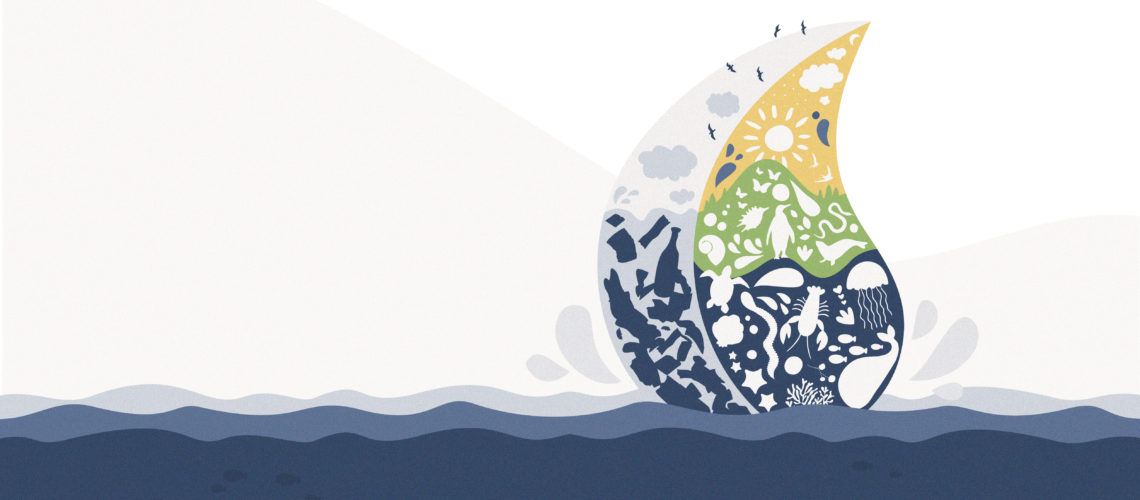
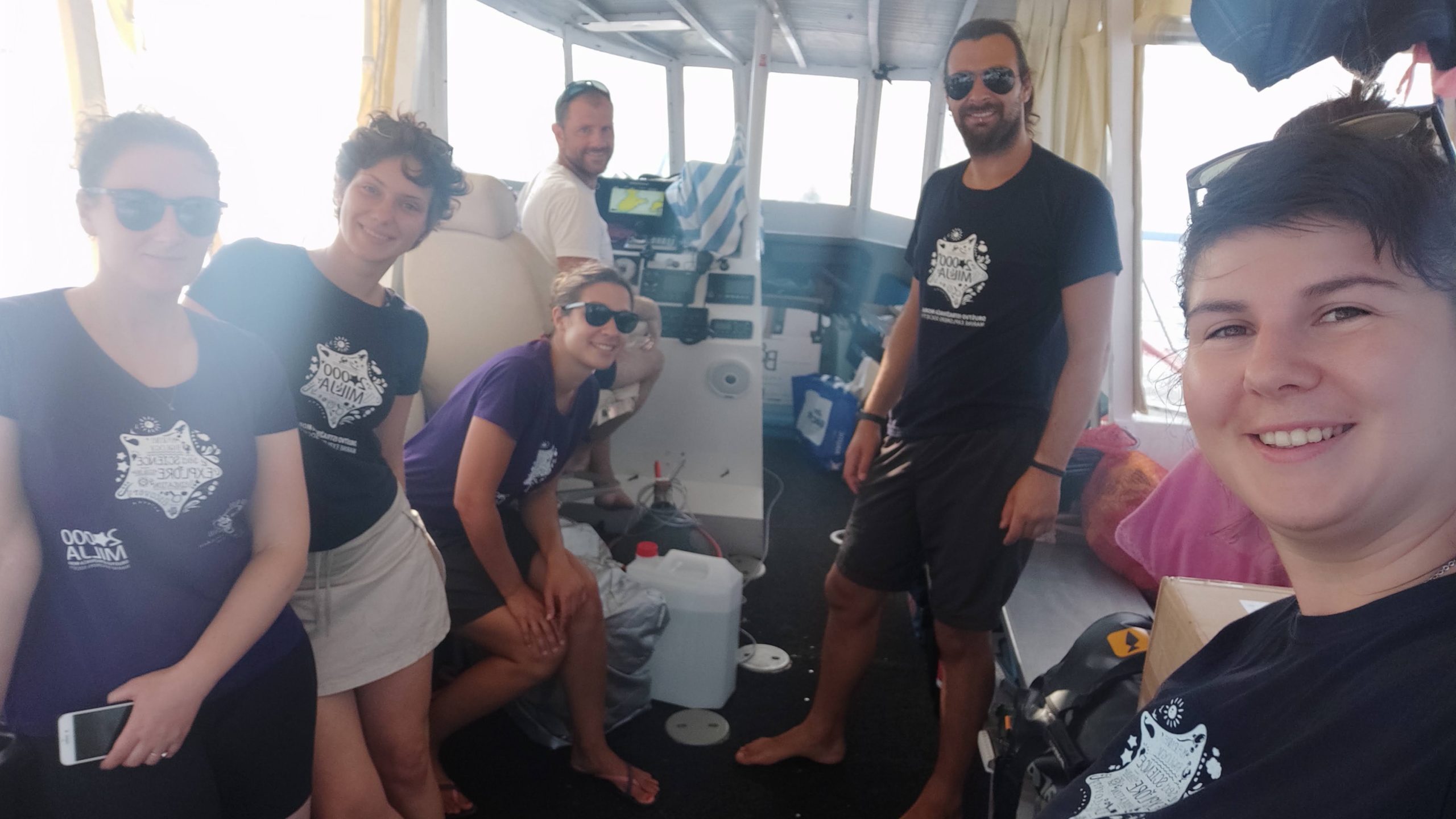
On Friday, August 14, we boarded all the necessary things and equipment on the diving boat early and headed towards Olib. We were greeted by the President of the Local Board of Olib who provided us with great logistical support during all activities. We immediately set to work to do the underwater cleaning action of the local harbor. The harbor underwater has been cleaned sporadically by enthusiastic individuals over the past few years, but there has been no organized, thorough action – therefore, we did not know exactly what to expect at the bottom. We had good support from the mainland, a few divers in the sea, a few snorkels and a hard-working team that collected a considerable amount of small light plastic floating on the surface with the nets. The situation on the surface of the sea is similar to that in the port of Silba – a large amount of light floating plastic (plastic bags, packaging and their fragments) that floats alone or entangled in discarded seaweed leaves called little Neptune grass (Cymodocea nodosa) that covers larger parts of the bottom of this harbor. The action of cleaning the seabed of the port on Olib showed that at the very bottom the situation is not so bad – there is marine litter, and the same ugly shots are repeated – however, since the port has not been systematically cleaned for many years – we were surprised by less than a dozen bags full of marine litter. They were mostly filled with pieces of discarded ropes, fishing gear, toys, carpets and other small items that probably accidentally fell out of the boats. Something that unpleasantly surprised us was the amount of tires in the seabed – fortunately, we managed to get them all out, and we struggled with one big one – fortunately, dear visitors of Olib jumped in to help with the extraction.
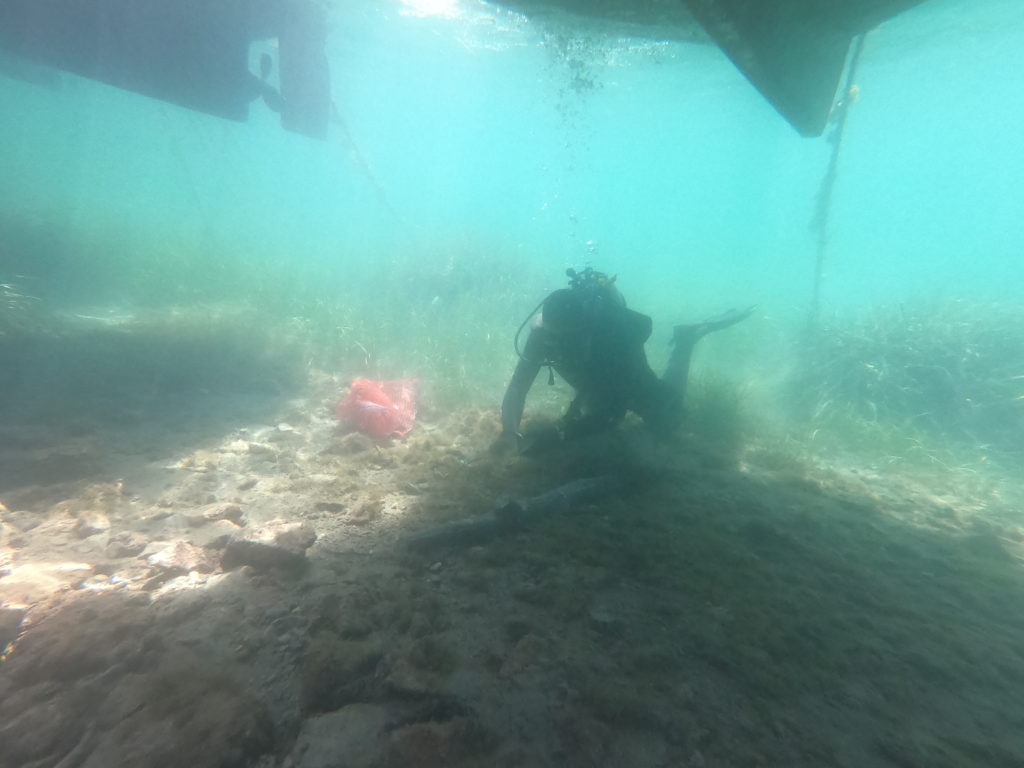
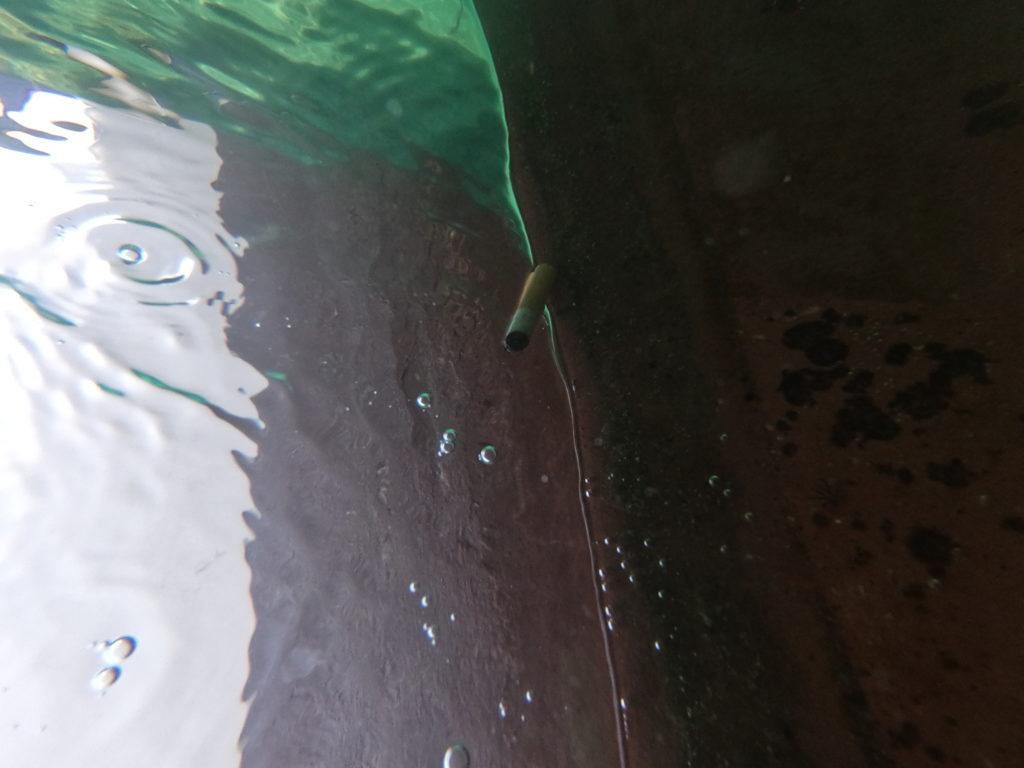
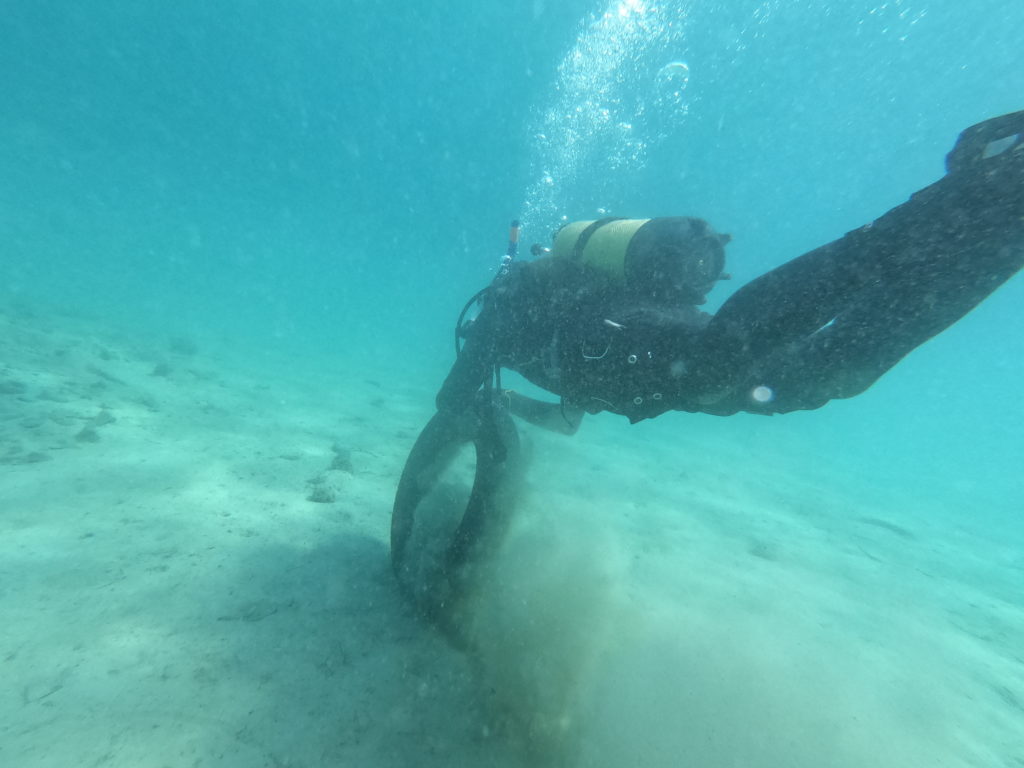
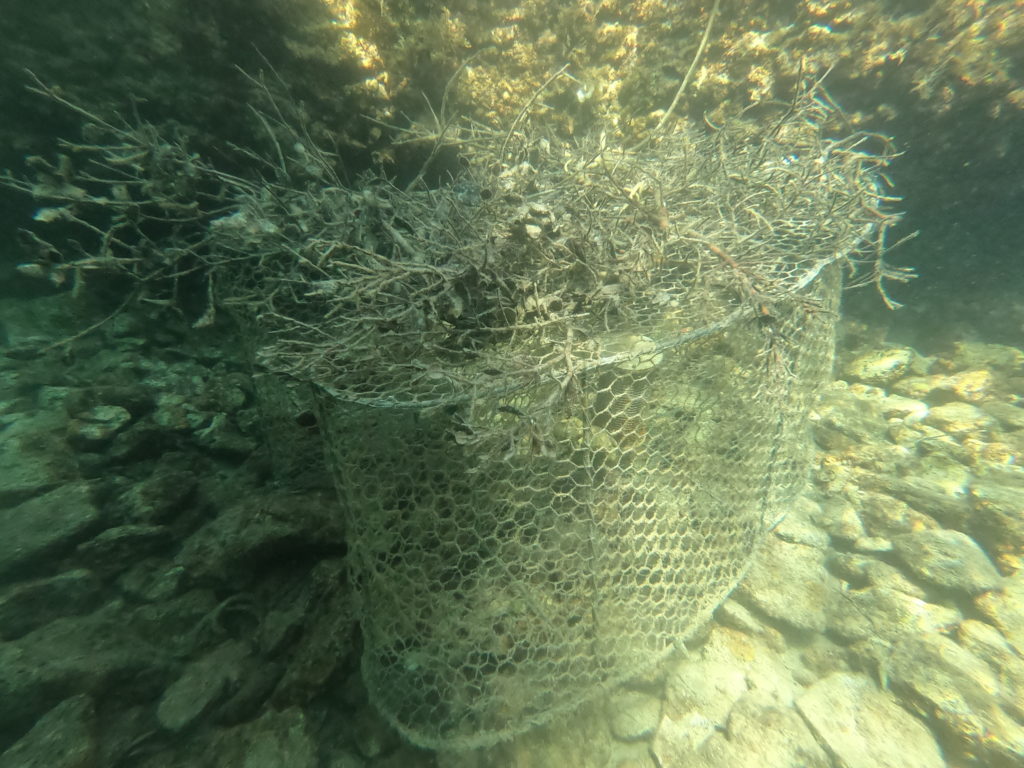
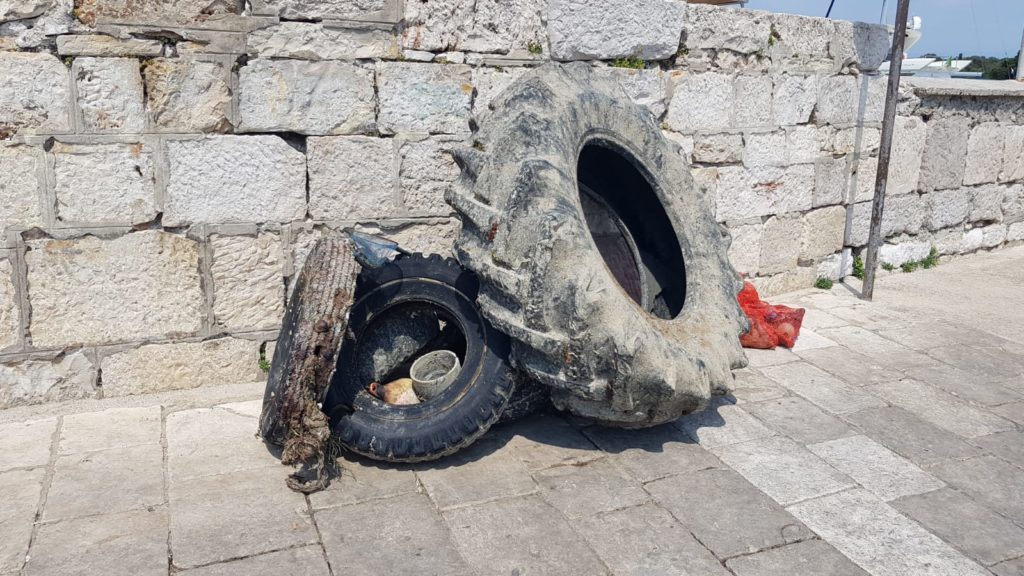
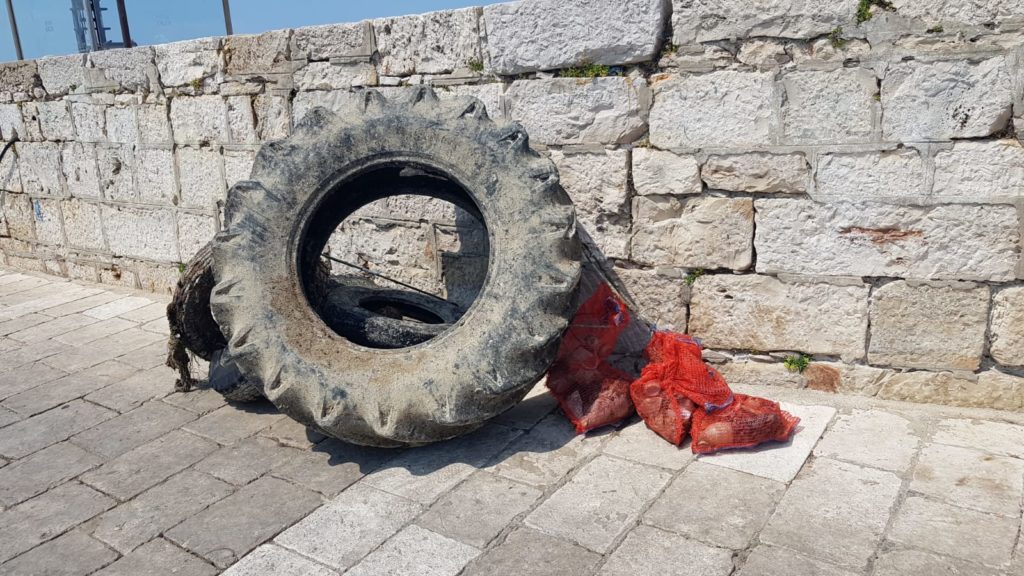
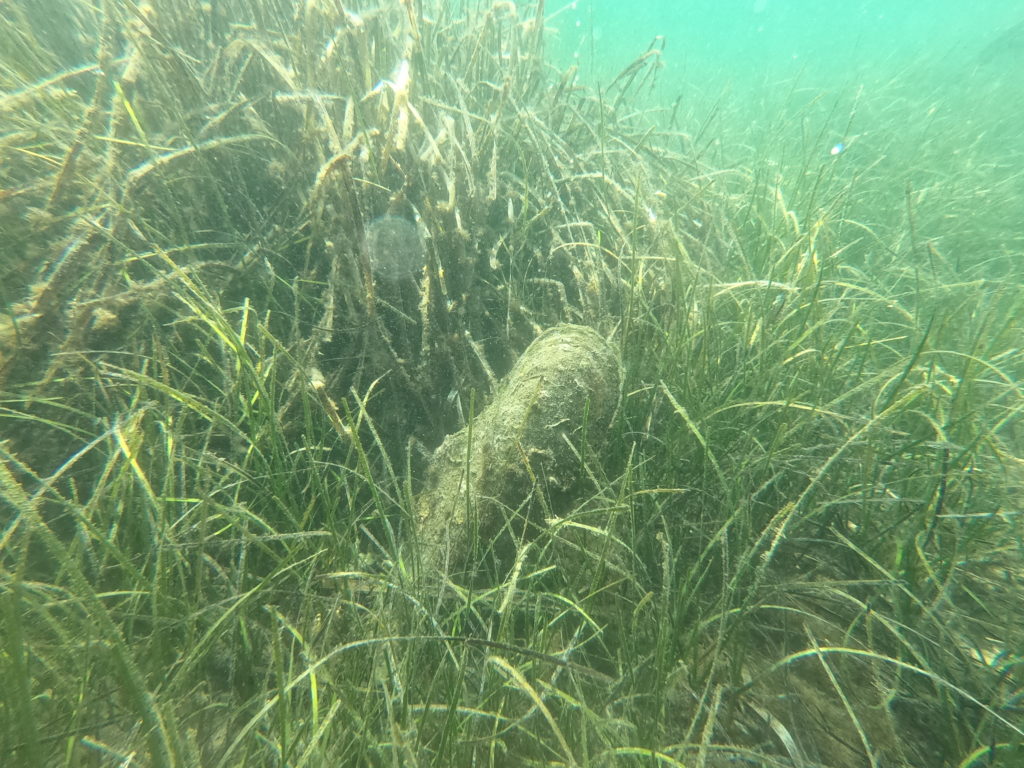
During the cleaning action, we came across about twenty shells of noble pen shell in the harbour. Large specimens now protrude upright in the harbour as monuments to this symbol of the Mediterranean, which has been hit by mass mortality in recent years.
We also recorded the appearance of discarded sea urchin shells in the harbour along the coast. The shells were discarded by humans after consuming the sea urchins themselves. This phenomenon is not uncommon in the Adriatic, especially by Italian tourists who like to eat gonads of sea urchins, however, their collection in nature is regulated by law and collection is not allowed without a valid permit from the relevant Ministries.
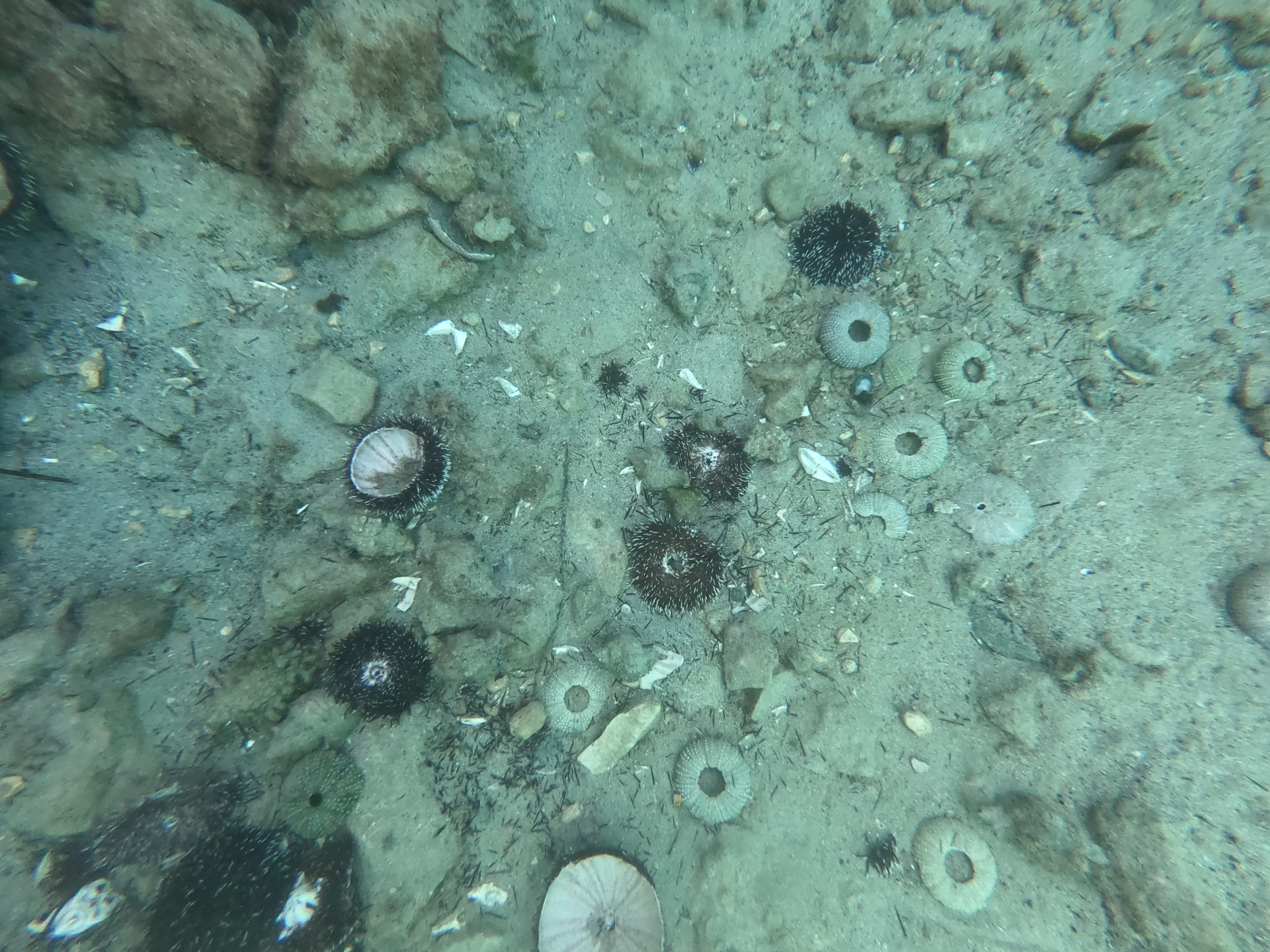
After a short break and lunch preparation, we threw ourselves into setting up an exhibition in the center of the village. In the evening, the crew of the Prince of Zadar – a local catamaran line that connects the islands of Silba and Olib with Zadar – caught us in the preparations. Since we have been active on Silba for many years, it was strange for them to see us on another island – but, we all decided that the decision to expand is a good one! By docking on Olib, the Prince of Zadar brought with him a little wind, which caused us minor problems in posting the photos, but we successfully bridged them. In a slightly different atmosphere, with slightly fewer trees, a night exhibition of photographs “Light and Darkness on the Sea Route” was held -for the first time on Olib. Already at the installation, there were many interested people who were all eagerly waiting for the opening of the exhibition, which they saw would take place on the island through promo posters and asked with interest how our cleaning action went and “how clean is our sea?”. We told them to make a “circle” after the opening of the exhibition, so maybe they will come back to us with the answer to that question. Given that this small island often lacks content for locals and visitors, everyone enthusiastically accepted this new educational content and watched the photos as well as read the accompanying stories. We encouraged visitors to think about their waste habits and the amount of plastic they create. We have also linked all the threats posed by waste to other attractive other biological and environmental issues – protection, conservation and marine protected areas. The pleasant suggestive atmosphere of the park near the port on Olib fit perfectly into this exhibition, and we felt very welcome on this “unknown” island! We thank all the visitors for coming and respecting the epidemiological measures on keeping the distance outdoors and we hope to see you next year!
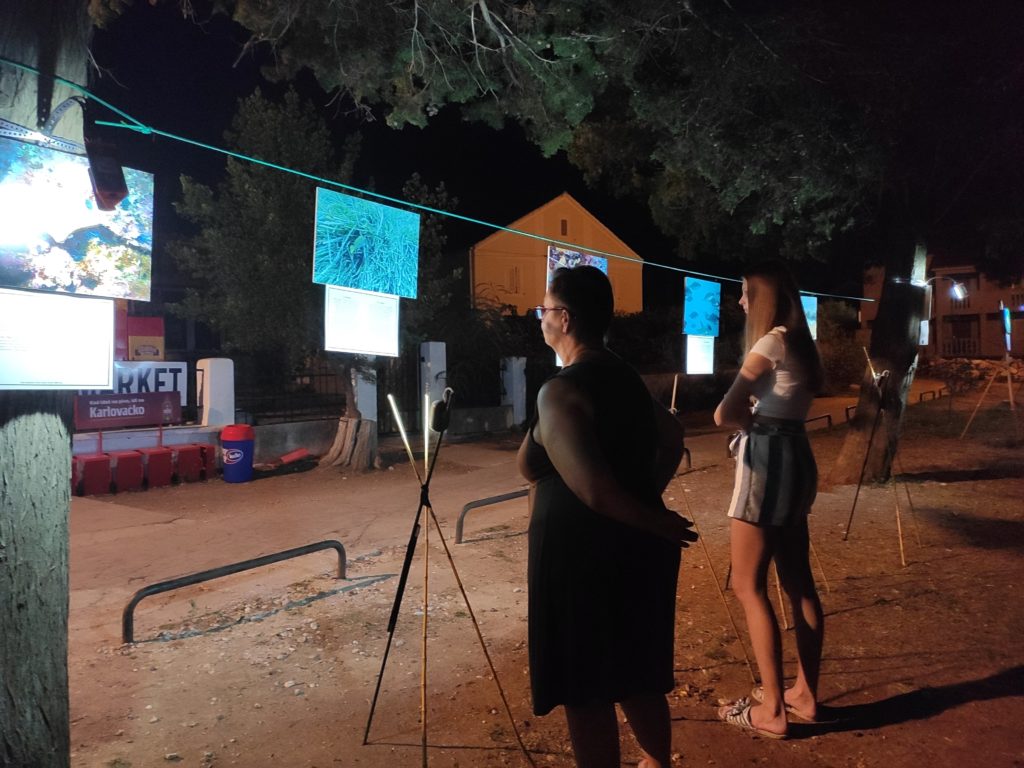
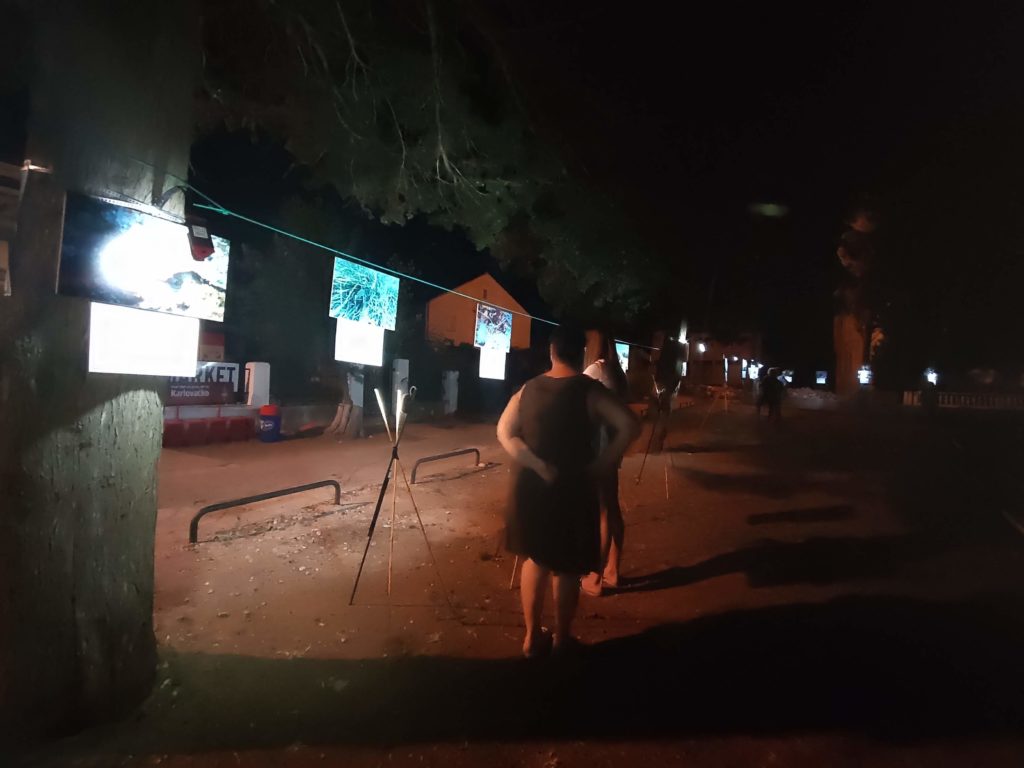
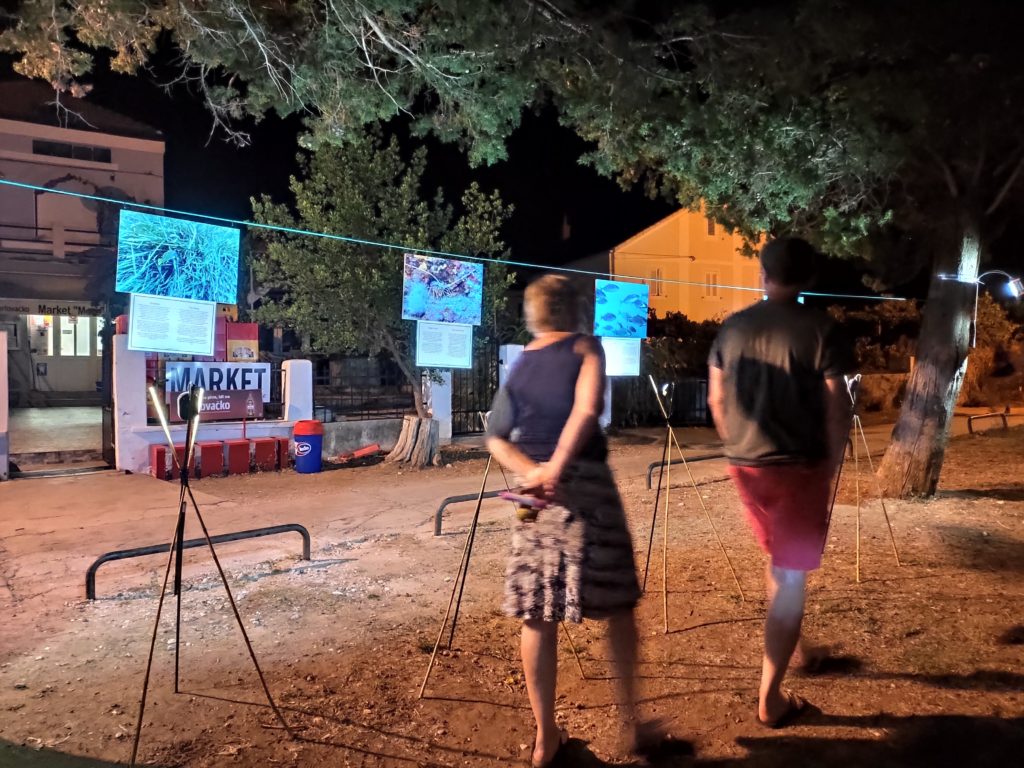
Thank you to all members and volunteers, and especially to the Local Board of Oliba and employees of Caffe bar Grobak with whom we have already started planning to install an educational info – board on their facility which is the main gathering place on Olib and the main crossing point in the harbor.
And now – Ist island!
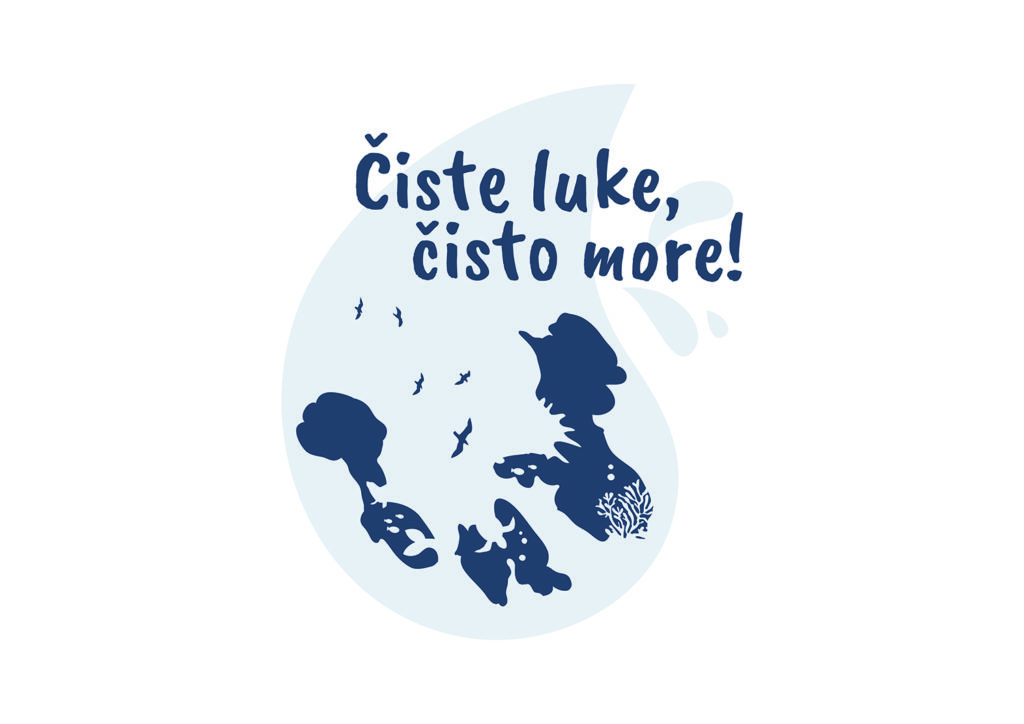
The activities of this program are part of the Society’s 20,000 Leagues initiative “TOGETHER AGAINST MARINE LITTER” and the project “Clean ports, clean sea!” Society 20,000 Leagues whose implementation is co-financed by the Environmental Protection and Energy Efficiency Fund and HEP. Let’s protect the environment together – co-financed by the Environmental Protection and Energy Efficiency Fund.
The content of this program is the sole responsibility of the Society 20,000 leagues and under no circumstances can it be considered as a reflection of the position of the EPEEF and HEP.
The project partners are the Mavena Association with the Silba Environment Art organization, the SOL Association from Olib and the Ist Youth Association and BIUS

2025 © Marine Explorers Society 20.000 leagues. ALL Rights Reserved.
